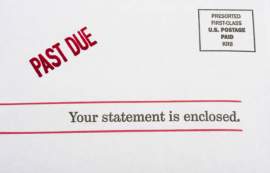
Consolidated Credit

Consolidated Credit Defined:
Consolidated credit counseling refers to the inclusion of a third party professional to help organize and agglomerate your debts. Consolidated credit councils thus group your payment schedules of previously-incurred debts into one all-encompassing debt/payment schedule. This process, which is known as debt consolidation, yields a singular monthly payment for all previously-attained debts. Furthermore, the financial maneuver is attached with a lower and fixed interest rate.
In addition to lower interest rates and fixed payment schedules, consolidated credit will enable the borrower to mitigate the risks associated with numerous debts; these risks include late fees, missed payments, service charges, and fluctuating and/or high interest rates. An individual should only contact consolidated credit services if their debts—and more specifically their monthly payments—are suffocating and impeding the purchase of necessities.
How do I Consolidate my Credit?
If you are in a financial hole, (your credit cards are maxed out and you are struggling to satisfy loan payments) credit consolidation is the most prudent way to regain control of your finances. Whether you seek the aid of a credit consolidation company or you initiate the process by yourself, you need follow these basic steps to get a control of your debt:
1. Before you engage in credit consolidation you must stop using all of your credit cards—the more you access these lines of credit, the more debt you will accumulate.
2. Calculate the amount of debt owed on your credit cards and loans. Work out an appropriate monthly figure to satisfy this amount. Observe the accounts with the largest outstanding balances.
3. Contact your credit card companies and ask if it is possible to lower your APR. When requesting for a decrease in your interest obligation, be persistent; paying a lower APR will help you eliminate your debts sooner.
4. See if your creditors offer any deals to aid with your credit consolidation. A long term/low interest rate can reduce your monthly payments and improve your finances. Furthermore, a zero percent balance transfer will enable you to start repaying your principal debt, as oppose to interest.
5. Transfer all of your debts onto your lowest rate credit card—this is the most efficient way to achieve consolidate credit.
6. Once transferred, pay more than the minimum payment each month. If you pay the same amount as you did prior to your consolidated credit, you will reduce the principal owed at a faster rate.
7. Stick to this plan and be consistent with your monthly payments to rid yourself of debt and get your finances in order.
Consolidated Credit through a Company or Licensed Professional:
In addition to transferring your debts to a low-interest credit card you can consult with a credit counseling company to have a professional consolidate your debts for you. To partake in this maneuver, simply contact a credit counseling service in your area—perform Internet searches and contact the Better Business Bureau to obtain a list of all consolidated credit companies in your region. You must ensure that these companies are members of the Better Business Bureau and comprised of certified credit counselors.
When you have chosen a consolidated credit company, contact them to schedule a free consultation. During this preliminary meeting you will be required to elucidate on all of your debts and their associated variables. When this information is exchanged, the counselor will offer a quote, which represents the cost of consolidating your debts. If you accept the fee, the counselor will contact all of your creditors to negotiate a discounted repayment rate.
Once the rates are negotiated your debts are successfully consolidated into a sweeping repayment plan. The interest rate is lowered and fixed and the associated monthly payment is far less than it would be if you were paying each debt separately.



















